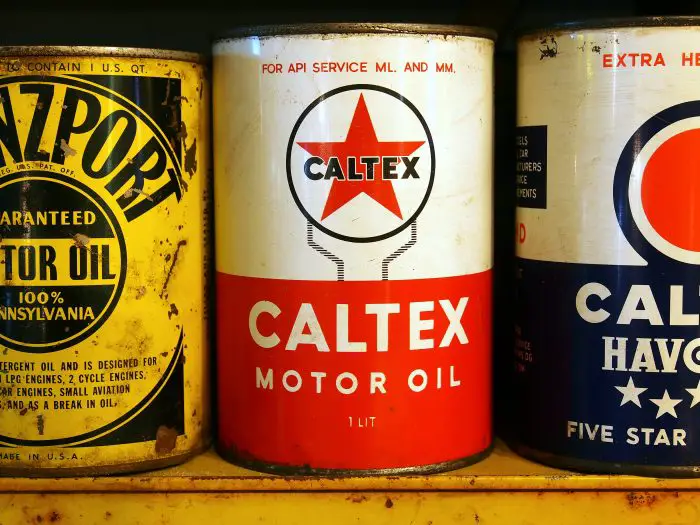Can you mix different brands of oil is a very common question asked from time to time. Different people will give you different answers, both providing evidence to back their reasoning.
Well, fear no more, this article will provide you with all the relevant information for both sides of this question and answer!
Is It Ok to Mix Oil Brands
First of all, I’m not sure why anyone wants to mix oil brands in the first place, but if you really want to mix oil brands then yes it is possible!
There’s a major myth that floats around informing people how harmful it is to mix oil brands, but this is far from the truth. Is it ok to mix synthetic oil brands? Even when mixing different synthetic motor oil, it is not as harmful as made out.

Is it ok to mix different brands of oil? The thing is, although it is possible, mixing motor oil is generally not recommended! But, many people have run experiments and found no issues from doing so. If you are to do it though, you should follow some guidelines.
First of all, the same API donut is required to do so. Viscosity is also a factor. The same level API will help you to get the same viscosities. The majority of the companies maintain API standards. It assures the performance and compatibility of the oils.
If you’re switching oil brands during your next oil change, there’s absolutely no problem. When the oil is drained, a very thin film still covers those vital components in your motor.
It’s okay to then fill up with a different brand of engine oil as the new filling will comprise the majority of the oil in your engine.
Why Mix Oil Brands?
Some of the key reasons as to why people ask when topping off synthetic oil, is it ok to mix brands is due to availability or costs.
Availability is the core factor here. If your compatible engine oil is not available around you. What will you do? You, of course, will use the convenient one or one you can get your hands on, causing you to mix the oil.
Another key reason is the cost of synthetic oil which can be high, and you may not be able to afford it. So, you instead intend to use a cheaper alternative produced by a different brand.
Is It Harmful to Mix Oil Brands?
Not always. If you maintain the standards during mixing oils, you can avoid the damage. At least, the damage is not as considerable as the myths say it is anyway.
The most significant point is that mixing will not cause your engine’s explosion if that’s what you were worried about. Most of the time, the difference will not be even noticeable. It will perform as regular. But some long-run effects will be apparent.
The performance of the lubricants will reduce as well as the lifetime of the engine. Other problems that could also occur include:
- Contamination
- Sedimentation
- Viscosity extension
Contamination
Sometimes low-quality mixing will cause contamination where slugs are deposited in the engine. There might be some partitioning of layers, along with foaming or darkening of oils occurring after the mixing process.
This will ultimately cause your engine’s performance to decrease.
Related: 5W30 vs 5W40 Engine Oil – What’s the Difference?
Sedimentation
Imbalance in the mixing of additives will reduce their effects. Precipitation can be formed due to the blending of different types of additives due to their incompatibility.
Viscosity Extension
Viscosity extension is a big deal as the paths of oil running can become clogged. This will increase the thickness of the oil path, disabling the engine from working so efficiently.
Reasons Not to Mix Oil Brands
Even if two different brands of oil have the same viscosity, you still ideally should not be mixing them together. But like I’ve said, there have been many experiments where mixing oils together has caused no issues, like this YouTube demonstration below – where a whopping 10 motor oils were mixed together!
Technically, using a grade of oil that’s recommended by your car manufacturer is correct. However, if you combine two different brands of motor oil, you could be at risk of damage as described in the last section. But, this is a massive “could“.
The reason is that every brand of engine oil is formulated differently, especially with regard to the additives used by its manufacturer.
Nobody, possibly except for the top scientists and engineers working in these oil firms, knows the chemistry of their engine oils and how the alternating additives will react with one another when the oils are combined.

Therefore, my advice is, that it’s better to be safe than sorry right? I strongly advise you to use the oil recommended by your manufacturer to ensure you encounter none of these potential issues.
Related: Can I Use 10W30 Instead of 5W30 Oil in My Car?
Mixing Synthetic Oil with Mineral Oil
Some people have asked about mixing conventional mineral and synthetic oils, well, that’s often seen as a big no-no.
Mineral and synthetic oils are totally different products. Trying to save money by using a bit of mineral oil then topping it off with synthetic oil is asking for trouble. They must never be mixed together! Well, so says the myth once again!
There have been many examples of conventional oil and synthetic oil being mixed together with no resulting issues. Here’s a YouTube demonstration of the argument!
FAQs (Frequently Asked Questions)
Yes, you can safely mix one brand of oil (e.g. Amsoil) with a different brand (e.g. Mobil 1) or conventional oil with synthetic oil (in fact, that’s what a synthetic blend is). Most synthetics today are fully compatible with conventional oils and can safely be mixed.
Not necessarily. The idea that it’s only going to cause you serious issues is a massive myth! There have been many examples of synthetic oil and conventional oils being safely mixed with no resulting issues.
Yes, it is certainly possible to do so. It is not as harmful as made out and you’re more than likely not going to come across any issues.
Yes, if you’re switching oil brands during your next oil change, there’s absolutely no problem using different brands of oil. When the old oil is drained, a very thin film still covers those vital components in your motor, but because the new oil will comprise the majority of the oil in your engine you will have no issues.
If you have any questions regarding mixing oil brands in your car engine, please leave a comment below, with a photo if applicable, so that someone can help you!

